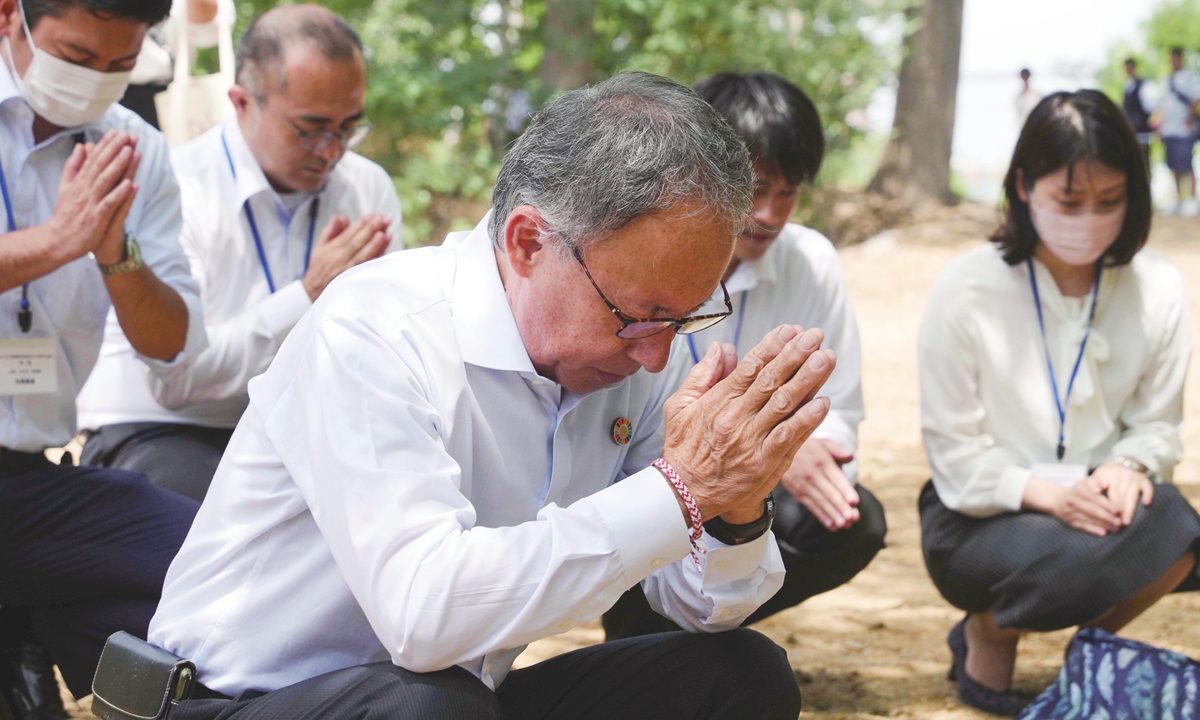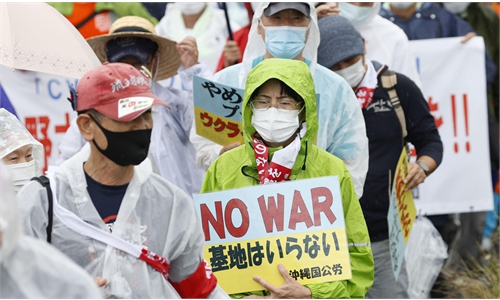
Okinawa Prefecture Governor Denny Tamaki pays his respects at the site of Ryukyu Kingdom cemetery in Zhangjiawan township in Beijing's Tongzhou district on July 4, 2023. Photo: VCG
During his visit to China, Okinawa Prefecture Governor Denny Tamaki on Tuesday paid his respects at the site of Ryukyu Kingdom cemetery in Zhangjiawan township in Beijing's Tongzhou district. He told the Global Times that he would be "very grateful" if the occasion of his visit could bring a wave of searching for Ryukyu relics in China.
The people's willingness to explore and understand the Ryukyu (the Ryukyu Islands were annexed by Japan and renamed Okinawa in 1879) relics left in China can promote the exchanges between the two sides in various fields such as history and culture, Tamaki said.
At the site, a Global Times reporter saw Tamaki present the deceased with offerings such as wine. He folded his hands and showed his respect in a traditional Ryukyu ritual. Tamaki said that the incense he used was produced using methods spread from China in ancient times, which is different from the incense now used in Japan.
In the Ming Dynasty (1368-1644) and Qing Dynasty (1644-1911), Zhangjiawan was an important wharf of the Beijing-Hangzhou Grand Canal and an entrance to Beijing from other regions. During the Qing Dynasty, most of the Ryukyu residents who died of illness were buried there, totaling 14 persons including envoys and students.
Tamaki said during the worship that he wanted to say "thank you" to his Ryukyu ancestors, as he wanted to continue unswervingly to maintain the link between Ryukyu (present-day Okinawa) and China created by his ancestors, making efforts to create an era of peace and prosperity.
The Ryukyu Kingdom and China have maintained friendly exchanges for more than 600 years, and we hope to carry on this historical tradition that many people wanted to protect and cherish, Tamaki noted.
In an exclusive interview with the Global Times, he stressed that the brutal "Battle of Okinawa" during World War II resulted in the tragic loss of one precious life out of every four Okinawan citizens, and all Okinawans have a fervent hope that "Okinawa must never again become a battlefield."
The story was published in the Global Times on Monday both in Chinese and English versions. The Global Times also sent the newspapers as gift to Tamaki. He said that the report has gained a lot of response and it is expected that relevant topics will gain continued attention.
After concluding his activities in Beijing, Tamaki will make a special visit to East China's Fujian Province, which has a sister relationship with the Okinawa Prefecture, to engage in exchange activities. He is expected to return to Japan on July 7.

